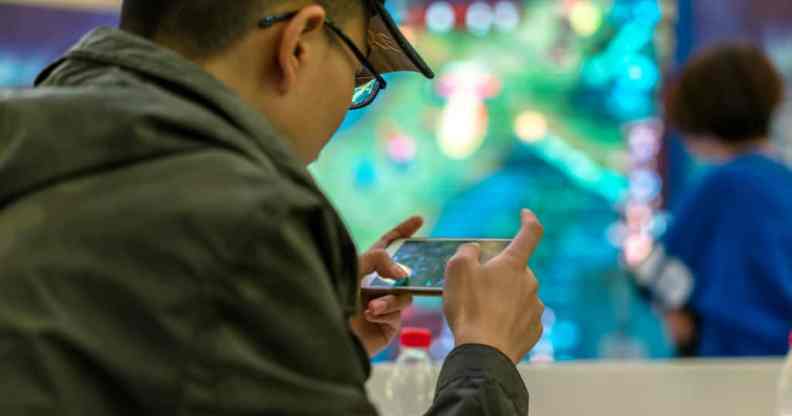China has long used facial recognition as a means of state control – now gamers are being targeted

Tencent game Arena of Valor player. (Zhang Peng/LightRocket via Getty Images)
Tencent, China’s largest technology company, is using facial recognition tech to stop children from gaming late at night.
China is tightening regulations around gaming, with fears that excessive gaming leads to crime and mental health issues.
With the new tech, if children under 18 try to play a game after 10pm, they’ll need to pass a check that uses the phone’s camera to verify their identity.
The check is to prevent children from abusing previous checks that have been in place. In 2019, real name identification systems were implemented across all games and time was limited to avoid addiction.
The new recognition technology will be linked to a public identity database to ensure accuracy.
Concerns have repeatedly been raised by human rights watchdogs about China’s increasingly authoritarian use of facial recognition technology as a next-level state surveillance tool.
The tech is used to regulate public behaviour, using a vast number of cameras around the country. It can log faces of nine-day-old babies, and is used as a means of state control. For example, Chinese officials have used surveillance tools to publicly shame people wearing sleepwear in public, calling it “uncivilised behavior.”
“We will conduct a face screening for accounts registered with real names and that have played for a certain period of time at night,” said Tencent Games.
“Anyone who refuses or fails the face verification will be treated as a minor, and as outlined in the anti-addiction supervision of Tencent’s game health system, and kicked offline.”
So far the check has been implemented on 60 of Tencent’s mobile games, including Honor of Kings and Game for Peace, but will be added to more in time.
Tencent has stakes in multiple video game companies, including Riot Games, Blizzard, Epic Games and even Ubisoft.
It’s unclear yet if these companies will need to use the same technology, at least for their titles in China.
Tencent also owns WeChat, China’s largest social media network.
Recently, several LGBT+ groups told Reuters they had been locked out of their accounts or had them removed, prompting concerns of a wider crackdown on LGBT+ people on the network.
The accounts had been sharing LGBT+ book recommendations, mental health resources and more.
For more gaming news, follow Gaymeo on Facebook and Twitter. You can also email us with any news or tips on [email protected]

